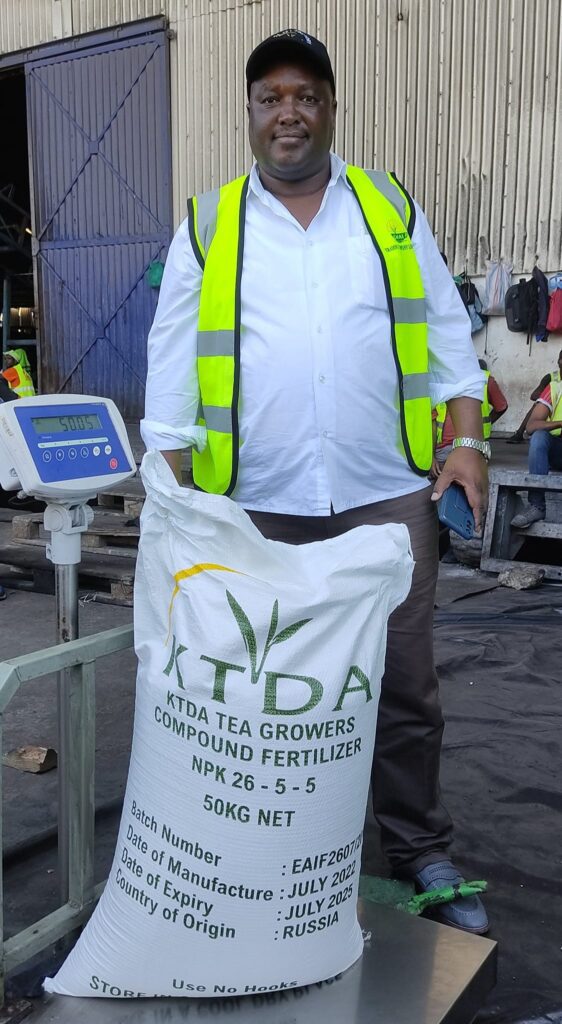Paul Ronoh, the Agriculture Principal Secretary, announced a series of measures aimed at supporting small-scale tea farmers, including the establishment of a fertilizer monitoring and inspection unit.
This initiative is designed to ensure that the fertilizers sold to farmers meet quality standards, preventing incidents of counterfeit fertilizers entering the market, which have been reported in various regions of the country.
Ronoh assured farmers that by the end of the month, deductions from their dues would be made to cover the cost of subsidized fertilizer.
He emphasized that the Kenya Tea Development Agency (KTDA) has been instructed to reflect these adjustments in the October payslips.
Speaking in Kericho, Ronoh stated that the government has allocated funds to KTDA for the subsidy program, thus eliminating any reason for farmers to face unjustified deductions.
“We have directed KTDA to refund any affected farmers by the end of this month,” he declared.
During his visit, Ronoh engaged with tea farmers to discuss their challenges and emphasized the importance of compliance with the use of standardized tea weighing machines.
This initiative aims to improve transparency in weighing practices, ensure the quality of tea, and verify that the machines are correctly calibrated.
The PS’s remarks come in response to complaints from farmers about unaccounted deductions in their September payslips.
Earlier in the month, KTDA had announced it would deduct sh. 3,400 per 50 kg of fertilizer, rather than the standard sh. 2,500, as part of the government’s subsidy initiative to revitalize the tea sector.
This deduction was set to be taken from bonuses distributed two weeks prior due to delays in government funding for the subsidy.
Ronoh revealed that the government has allocated sh. 2 billion for the subsidy program in the 2024/2025 financial year, in addition to sh. 1.4 billion provided in July 2023.
KTDA has procured 97,000 metric tonnes of chemically compounded NKP 26:5:5 fertilizer this year, which is an increase from last year’s order.
Currently, 47,390 metric tonnes have arrived and are being distributed to farmers in tea-growing regions.
In his commitment to ensure fertilizer quality, Ronoh reiterated the establishment of the monitoring unit that will oversee the sale and distribution of fertilizers.
“We are ensuring that every point of sale and distribution is inspected,” he noted.
The ministry is collaborating with the Kenya Bureau of Standards (KeBS) and accredited inspection agencies to uphold these standards.
TSC Reveals 20,000 Internship Positions For JSS: Here’s How To Apply

